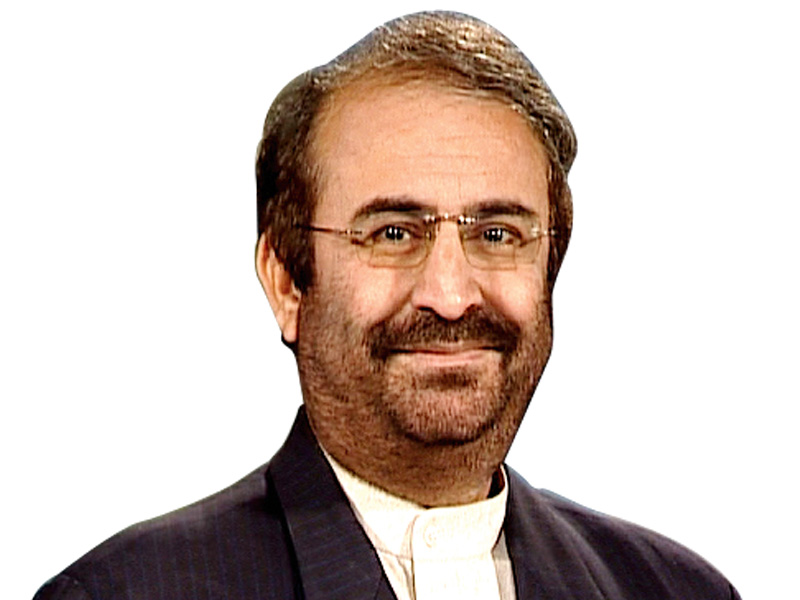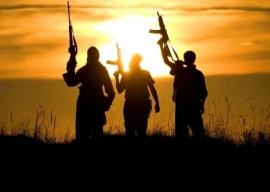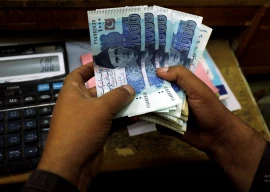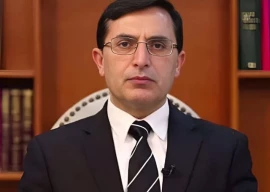
Electioneering in Afghanistan gained more steam as the Independent Election Commission formally allowed 2,713 provincial council candidates, including 308 women, to begin campaigning for the April 5 elections. These polls will mark the first democratic transition in the country’s history.
At the same time, political manoeuvring for presidential polls continues with the recent decision by President Hamid Karzai’s older brother Qayum Karzai to drop out of the race in favour of former foreign minister Zalmai Rasoul. Qayum and Rasoul announced their coalition at a gathering of supporters in Kabul on Thursday.

Qayum told the meeting he has decided to join Rasoul’s camp after a series of consultations involving tribal elders and representatives from 28 provinces. “We joined hands because our views, plans and objectives are the same. We will work together under a strong alliance,” he added.
Out of 11 presidential candidates, only one has left the election arena up till now. Political observers expect a few more could withdraw in the coming days as efforts are under way to bring a ‘consensus candidate’ who would be considered close to the Karzai camp to replace the decade-long head of Afghanistan.
Wrangling over candidates
An earlier poll had placed Karzai’s main rival Dr Abdullah Abdullah and Dr Ashraf Ghani, the former finance minister and another Karzai rival, as the frontrunners. However, Rasoul’s supporters now seem upbeat over Qayum’s move and claim it has boosted their chances.
“Qayum’s decision has had a positive impact on Rasoul’s position and we hope it will encourage other candidates to withdraw in his favour,” said Anayat Safi, a senior member of Rasoul’s election campaign.
Safi told The Express Tribune from Asadabad, the capital of Kunar province, that the Rasoul-Qayum alliance will win more support, especially in Pukhtun-majority areas. He rejected claims by Rasoul’s political rivals that President Karzai’s alleged interference has paved the way for the withdrawal of his brother.

Qayum’s exit follows a series of jirgas at the Presidential Palace to allegedly broker the election deal. Karzai’s spokesman said the jirgas were part of routine consultations to “discuss national issues.” He reiterated claims that President Karzai will remain impartial throughout.
Karzai’s main rival, Dr Abdullah, accused the president of interference. Abdullah ran against Karzai in the 2009 presidential elections; he told thousands of his supporters at a recent election rally in Kabul that the president used his office for arranging a meeting of candidates to urge them to support a specific candidate.
“Some candidates are worried and few are upset as Karzai had promised them support but has now backed out,” said Abdullah at the election meeting this week.
Karzai’s other rival Dr Ashraf and his vice-presidential candidate Abdul Rashid Dostam spoke at election rallies in the northern province of Kunduz on Thursday and said they are not worried over the Qayum-Rasoul alliance.
We do not consider it a threat as we will emerge victorious, they stated at the rally, according to the BBC Pashto service.
Local political analysts suspect Karzai’s move to make allies of the Pukhtuns - Qayum and Rasoul - is a move aimed at pitting ethnic groups against one another.
It is widely perceived all candidates believed to be close to Karzai will drop out of the race in favour of Karzai’s desired candidate by the end of the race.
Hizb-e-Islami chief Gulbuddin Hekmatyar’s decision to support presidential candidate Qutbuddin Hilal, former head of the party’s political council, has also improved Hilal’s position. However, he is still far behind in the race, according to polls.
Published in The Express Tribune, March 8th, 2014.

















COMMENTS
Comments are moderated and generally will be posted if they are on-topic and not abusive.
For more information, please see our Comments FAQ